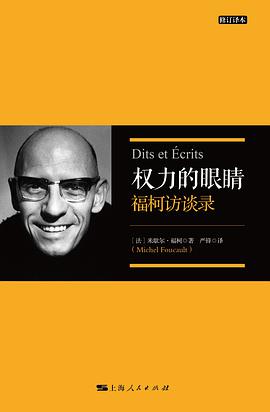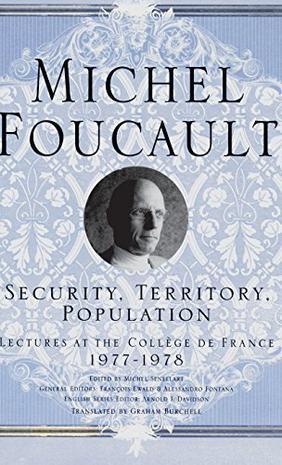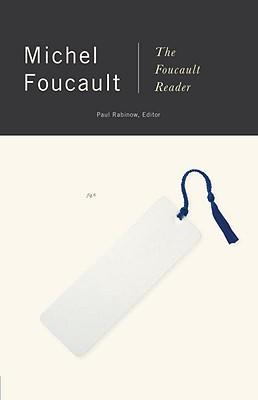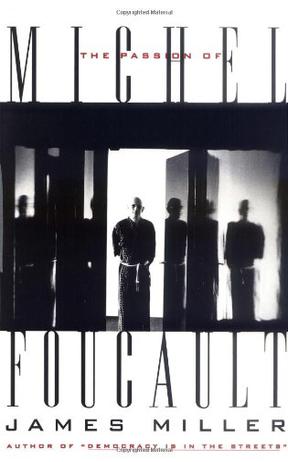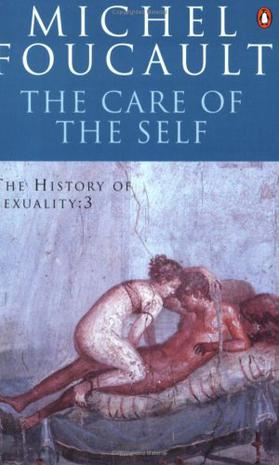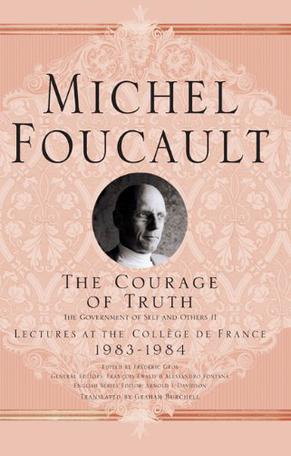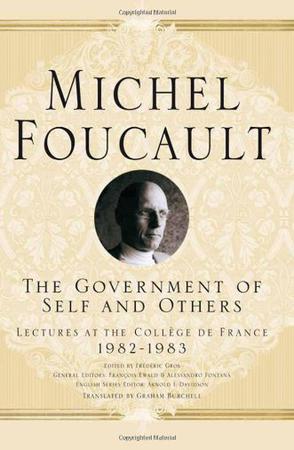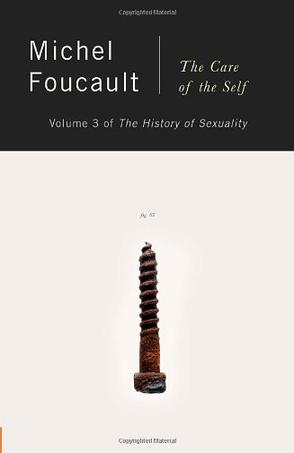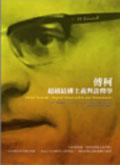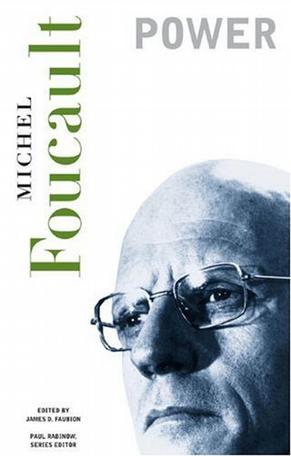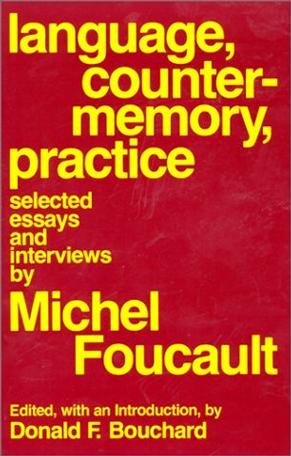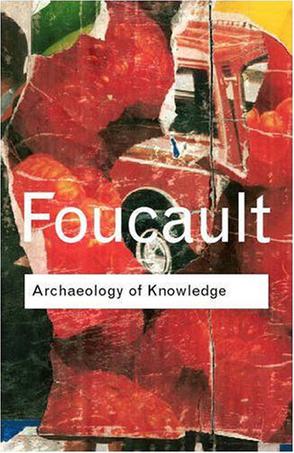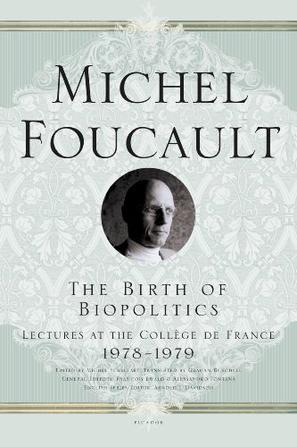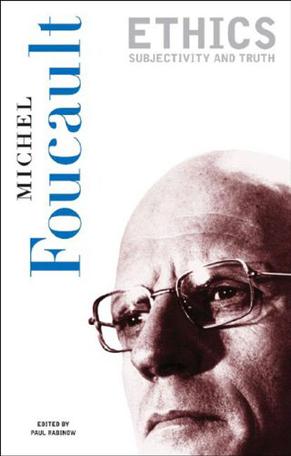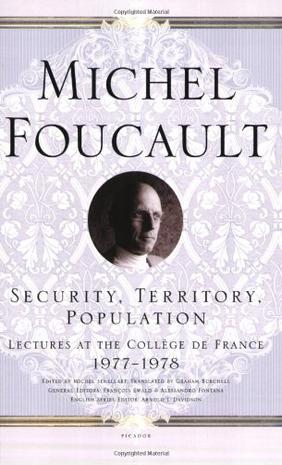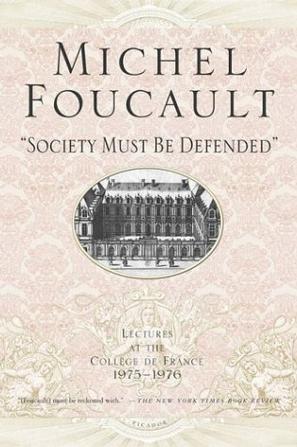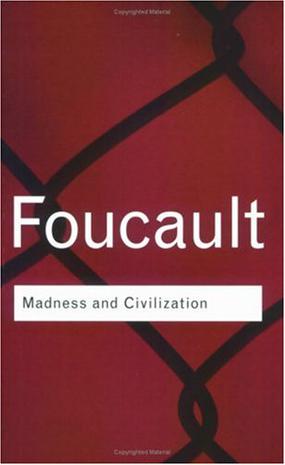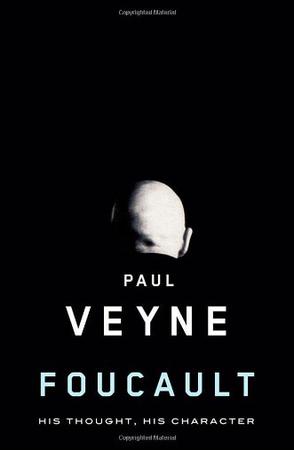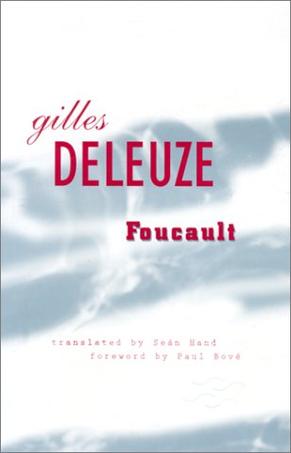欢迎来到相识电子书!
标签:Foucault
-
权力的眼睛
◎福柯被布罗代尔誉为“法国当代最光彩夺目的思想家”,他的思想深刻影响了后结构主义、后现代主义、女性主义等各种时代思潮。
◎福柯的思想深邃、多变,他的著作也晦涩、难懂,《权力的眼睛》一书通过选编福柯生前发表的19篇对话、访谈、演讲,生动呈现了福柯的思想肖像。揭开概念迷雾,我们可以更真实地触摸福柯。
福柯不是一位学院派哲学家,因为他关注的对象——疯人院、监狱、妇女、儿童等——初看起来不那么“哲学”。然而正是由此,福柯发现了笼罩在世人身上的隐形的权力之网。当下,我们在互联网上的蛛丝马迹都被记录、分析,以便精准化营销。权力之眼不仅仅是圆形监狱、无处不在的摄像头,还是不断迭代的大数据。人人都是透明人。
福柯并未远去,他的思想仍然值得我们反复咀嚼。通过他生前留下的大量访谈和演讲,我们可以更便捷地了解他在《癫狂的历史》《词与物》《规训与惩罚》《性史》等著作中表达的深邃哲思。让我们一起走近这位“当代最光彩夺目的思想家”!
-
The Foucault Reader
Michel Foucault was one of the most influential thinkers in the contemporary world, someone whose work has affected the teaching of half a dozen disciplines ranging from literary criticism to the history of criminology. But of his many books, not one offers a satisfactory introduction to the entire complex body of his work. The Foucault Reader was commissioned precisely to serve that purpose. . The Reader contains selections from each area of Foucault's work as well as a wealth of previously unpublished writings, including important material written especially for this volume, the preface to the long-awaited second volume of The History of Sexuality, and interviews with Foucault himself, in the course of which he discussed his philosophy at first hand and with unprecedented candor. . This philosophy comprises an astonishing intellectual enterprise: a minute and ongoing investigation of the nature of power in society. Foucault's analyses of this power as it manifests itself in society, schools, hospitals, factories, homes, families, and other forms of organized society are brought together in The Foucault Reader to create an overview of this theme and of the broad social and political vision that underlies it. . . From the Inside Flap Michel Foucault was one of the most influential thinkers in the contemporary world, someone whose work has affected the teaching of half a dozen disciplines ranging from literary criticism to the history of criminology. But of his many books, not one offers a satisfactory introduction to the entire complex body of his work. The Foucault Reader was commissioned precisely to serve that purpose. . The Reader contains selections from each area of Foucault's work as well as a wealth of previously unpublished writings, including important material written especially for this volume, the preface to the long-awaited second volume of The History of Sexuality, and interviews with Foucault himself, in the course of which he discussed his philosophy at first hand and with unprecedented candor. . This philosophy comprises an astonishing intellectual enterprise: a minute and ongoing investigation of the nature of power in society. Foucault's analyses of this power as it manifests itself in society, schools, hospitals, factories, homes, families, and other forms of organized society are brought together in The Foucault Reader to create an overview of this theme and of the broad social and political vision that underlies it. -
The Passion of Michel Foucault
This is a study of Michel Foucault's life in philosophy. Foucault was probably the most influential Western philosopher since Sartre. Hailed as an original thinker, he has also been criticized as a dangerous and irresponsible nihilist. Drawing on extensive research, this book focuses on the philosopher's obsession with death and his taste for sado-masochistic sex. By the author of "Democracy in the Streets". . Based on extensive new research and a bold interpretation of the man and his texts, The Passion of Michel Foucault is a startling look at one of this century's most influential philosophers. It chronicles every stage of Foucault's personal and professional odyssey, from his early interest in dreams to his final preoccupation with sexuality and the nature of personal identity. -
The History of Sexuality
This is the third volume of Foucault's "History of Sexuality". A sociologist and historian of ideas, Foucault's other works include "Madness and Civilization", "The Archaeology of Knowledge", "The Birth of the Clinic" and "Discipline and Punish". -
The Courage of Truth
The course given by Michel Foucault from February to March 1984, under the title The Courage of Truth, was his last at the Collège de France. His death shortly after, on June 25th, tempts us to detect a philosophical testament in these lectures, especially in view of the prominence they give to the theme of death, notably through a reinterpretation of Socrates' last words–'Crito, we owe a cock to Asclepius'– which, with Georges Dumézil, Foucault understands as the expression of a profound gratitude towards philosophy for its cure of the only serious illness: that of false opinions and prejudices. These lectures continue and radicalize the analyses of those of the previous year. Foucault's 1983 lectures investigated the function of 'truth telling' in politics in order to establish courage and conviction as ethical conditions for democracy irreducible to the formal rules of consensus. With the Cynics, this manifestation of the truth no longer appears simply as a risky speaking out, but in the very substance of existence. In fact, Foucault offers an incisive study of ancient Cynicism as practical philosophy, athleticism of the truth, public provocation, and ascetic sovereignty. The scandal of the true life is constructed in opposition to Platonism and its world of transcendent intelligible Forms. 'There is no establishment of the truth without an essential position of otherness. The truth is never the same. There can be truth only in the form of the other world and the other life.' -
The Government of Self and Others
This lecture, given by Michel Foucault at the College de France, launches an inquiry into the notion of parresia and continues his rereading of ancient philosophy. Through the study of this notion of truth-telling, of speaking out freely, Foucault re-examines Greek citizenship, showing how the courage of the truth forms the forgotten ethical basis of Athenian democracy. The figure of the philosopher king, the condemnation of writing, and Socrates' rejection of political involvement are some of the many topics of ancient philosophy revisited here. -
傅柯:超越結構主義與詮釋學
「本書提供了精確而綜合的觀點……我相信這本著作為聯繫美國和歐洲的思想開啟了新的境域」——傅柯(Michel Foucault) 「重點不是說了什麼,而是誰在說」 本書是兩位傑出學者聯手向傅柯的挑戰,也是迄今對傅柯學說歷程描述的最具深度的佳作。傅柯的傑出之處在於對考古學和系譜學的巧妙混用,從而獨創了一種有別於結構主義和詮釋學的理解人和社會的方法 ,即本書作者所謂的「詮釋解析法」。 本書的可貴之處有三。首先,傅柯學說對今日的影響已廣泛運用於各種權力論述,甚至及於網絡社會的研究,但是他如何能在當時瀰漫著現象學、結構主義以及詮釋學的氛圍中,開創新局,展開一場以「權力」為探索主軸的知識考古旅程,卻難以為識者所悉,本書是最好的入門手冊。 其次,兩位作者學域含括廣泛,德福雷斯鑽研於現象學、詮釋學,拉比諾則長於結構主義,所論所述,剛好切合了當時傅柯所處的學術氛圍,誠如中譯者所言,「復活」了傅柯學說。 最後,本書另收入了哈伯瑪斯與傅柯的爭議評析,哈伯瑪斯所提出的公共領域、合法化問題,今日仍是社會學理論的主流,他與傅柯對「啟蒙」的論爭,不啻勾勒出當代西方哲學的探索路徑。 -
Power
The definitive edition of Foucault's articles, interviews, and seminars. . Few philosophers have had as strong an influence on the twentieth century as Michel Foucault. His work has affected the teaching of any number of disciplines and remains, twenty years after his death, critically important. This newly available edition is drawn from the complete collection of all of Foucault's courses, articles, and interviews, and brings his most important work to a new generation of readers. . Power (edited by James D. Faubion) draws together Foucault's contributions to what he saw as the still-underdeveloped practice of political analysis. It covers the domains Foucault helped to make part of the core agenda of Western political culture—medicine, psychiatry, the penal system, and sexuality. -
The Order of Things
When one defines "order" as a sorting of priorities, it becomes beautifully clear as to what Foucault is doing here. With virtuoso showmanship, he weaves an intensely complex history of thought. He dips into literature, art, economics and even biology in The Order of Things, possibly one of the most significant, yet most overlooked, works of the twentieth century. Eclipsed by his later work on power and discourse, nonetheless it was The Order of Things that established Foucault's reputation as an intellectual giant. Pirouetting around the outer edge of language, Foucault unsettles the surface of literary writing. In describing the limitations of our usual taxonomies, he opens the door onto a whole new system of thought, one ripe with what he calls "exotic charm". Intellectual pyrotechnics from the master of critical thinking, this book is crucial reading for those who wish to gain insight into that odd beast called Postmodernism, and a must for any fan of Foucault. -
Archaeology of Knowledge
在线阅读本书 Foucault's classic methodological statement. -
The Birth of Biopolitics
Picador is proud to publish the sixth volume in Foucault's prestigious, groundbreaking series of lectures at the College de France from 1970 to 1984 "The Birth of Biopolitics "continues to pursue the themes of Foucault's lectures from "Security, Territory, Population": having shown how eighteenth century political economy marks the birth of a new governmental rationality--seeking maximum effectiveness by governing less and in accordance with the naturalness of the phenomena to be governed--Michel Foucault undertakes a detailed analysis of the forms of this liberal governmentality. This book raises questions of political philosophy and social policy that are at the heart of current debates about the role and status of neo-liberalism in twentieth century politics. -
Ethics
The definitive edition of Foucault's articles, interviews, and seminars. . Few philosophers have had as strong an influence on the twentieth century as Michel Foucault. His work has affected the teaching of any number of disciplines and remains, twenty years after his death, critically important. This newly available edition is drawn from the complete collection of all of Foucault's courses, articles, and interviews, and brings his most important work to a new generation of readers. . Ethics (edited by Paul Rabinow) contains the summaries of Foucault's renowned courses at the Collège de France, paired with key writings and interviews on friendship, sexuality, and the care of the self and others. . Annotation The first volume of the series contains the famous course summaries which Foucault submitted to the College de France each year from 1970 to 1982. Never before available in English, these writings provide a lucid and accessible overview of Foucault's work in progress during this time, including his groundbreaking analyses of penal institutions, psychiatry, "bio-politics, " and the status of the modern subject. 320 pp. 15,000 print. -
Security, Territory, Population
Marking a major development in Foucault's thinking, this book takes as its starting point the notion of "biopower," studying the foundations of this new technology of power over populations. Distrinct from punitive disciplinary systems, the mechanisms of power are here finely entwined with the technologies of security. In this volume, though, Foucault begins to turn his attention to the history of "governmentality," from the first centuries of the Christian era to the emergence of the modern nation state--shifting the center of gravity of the lectures from the question of biopower to that of government. In light of Foucault's later work, these lectures illustrate a radical turning point at which the transition to the problematic of the "government of self and others" would begin. -
Society Must Be Defended
An examination of the relation between war and politics, by one of the twentieth century's most influential thinkers From 1971 until 1984 at the Collège de France, Michel Foucault gave a series of lectures ranging freely and conversationally over the range of his research. In Society Must Be Defended, Foucault deals with the emergence in the early seventeenth century of a new understanding of war as the permanent basis of all institutions of power, a hidden presence within society that could be deciphered by an historical analysis. Tracing this development, Foucault outlines the genealogy of power and knowledge that had become his dominant concern. -
Madness and Civilization
'Time has proved Madness and Civilization by far the most penetrating work ever written on the history of madness (and, above all the history of reason).' - Roy Porter 'Michel Foucault's - Madness and Civilization has been, without a shadow of a doubt, the most original, influential, and controversial text in this field during the last forty years. It remains as challenging now as on first publication. Its insights have still not been fully appreciated and absorbed.' 'This is quite an exceptional book of very high calibre - brilliantly written, intellectually rigorous, and with a thesis that thoroughly shakes the assumptions of traditional psychiatry.' - R.D. Laing 'Michel Foucault's Madness and Civilization has been, without a shadow of a doubt, the most original, influential, and controversial text in this field during the last forty years. It remains as challenging now as on first publication.' - Roy Porter -
Foucault
Michel Foucault and Paul Veyne: the philosopher and the historian. Two major figures in the world of ideas, resisting all attempts at categorization. Two timeless thinkers who have long walked and fought together. In this short book Paul Veyne offers a fresh portrait of his friend and relaunches the debate about his ideas and legacy. ‘Foucault is not who you think he is’, writes Veyne; he stood neither on the left nor on the right and was frequently disowned by both. He was not so much a structuralist as a sceptic, an empiricist disciple of Montaigne, who never ceased in his work to reflect on 'truth games', on singular, constructed truths that belonged to their own time. A unique testimony by a scholar who knew Foucault well, this book succeeds brilliantly in grasping the core of his thought and in stripping away the confusions and misunderstandings that have so often characterized the interpretation of Foucault and his work.
热门标签
下载排行榜
- 1 梦的解析:最佳译本
- 2 李鸿章全传
- 3 淡定的智慧
- 4 心理操控术
- 5 哈佛口才课
- 6 俗世奇人
- 7 日瓦戈医生
- 8 笑死你的逻辑学
- 9 历史老师没教过的历史
- 10 1分钟和陌生人成为朋友

